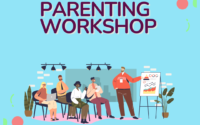Parent-Child Communication Training: Why Parents Should Develop Counseling Skills
Why Parents Should Learn and Develop Counseling Skills
Parenting is a lifelong journey filled with joys, challenges, and countless learning opportunities. One of the most crucial yet often overlooked aspects of parenting is effective communication with children. This is where Parent-Child Communication Training comes in, equipping parents with the necessary counseling skills to build deeper connections and nurture their child’s emotional and psychological development.
In today’s fast-paced world, where stress, peer pressure, and digital distractions abound, children need more than just guidance—they need empathetic, understanding parents who can listen without judgment and respond with care. Developing counseling skills is no longer optional; it’s essential for fostering trust and ensuring a healthy parent-child relationship.
Understanding the Need for Counseling Skills
Counseling skills help parents step into their child’s world, understand their emotions, and provide the support they need. These skills are not about turning parents into professional therapists but empowering them to handle everyday challenges effectively.
Children often struggle to articulate their feelings. When parents are equipped with counseling techniques, they can:
- Recognize signs of emotional distress.
- Encourage open and honest communication.
- Offer solutions tailored to their child’s unique needs.
Such skills are invaluable for addressing issues like academic stress, social anxiety, or behavioral changes.
Benefits of Parent-Child Communication Training
Here’s why Parent-Child Communication Training is a game-changer for modern families:
1. Strengthening Emotional Bonds
When parents communicate effectively, they create a safe space for their children to express themselves. This builds trust, ensuring children feel valued and understood.
2. Reducing Misunderstandings
Miscommunication is one of the leading causes of conflict in families. By learning active listening and empathetic responses, parents can bridge the gap and foster mutual understanding.
3. Improving Problem-Solving Skills
Counseling skills teach parents how to guide their children in analyzing situations, exploring options, and making informed decisions. This empowers kids to become confident, independent problem-solvers.
4. Encouraging Healthy Coping Mechanisms
Life is full of ups and downs, and children often mirror how their parents handle stress. By modeling healthy coping strategies, parents can help their children navigate challenges with resilience and optimism.
5. Boosting Academic and Social Success
Children who feel emotionally supported at home are more likely to excel in academics and maintain healthy friendships. They approach life with a sense of security and self-worth.
Key Counseling Skills Parents Should Master
To reap the benefits of Parent-Child Communication Training, parents should focus on developing these core skills:
1. Active Listening
Listening isn’t just about hearing words; it’s about understanding the emotions behind them. Make eye contact, acknowledge your child’s feelings, and validate their experiences.
2. Empathy
Put yourself in your child’s shoes. Empathy helps parents connect on a deeper level and respond with compassion rather than criticism.
3. Non-verbal Communication
Body language speaks volumes. A warm smile, gentle touch, or reassuring nod can make a child feel loved and supported.
4. Open-Ended Questions
Encourage children to share more by asking open-ended questions like, “How did that make you feel?” instead of “Are you okay?”
5. Conflict Resolution
Teach children how to address disagreements respectfully and find solutions that work for everyone involved.
The Role of Parent-Child Communication Training
Parenting doesn’t come with a manual, but Parent-Child Communication Training serves as a valuable guide. This training not only equips parents with counseling skills but also helps them:
- Understand the developmental stages of their children.
- Foster a growth mindset in their kids.
- Address issues like bullying, peer pressure, or digital addiction.
- Build a home environment where everyone feels heard and respected.
With structured training, parents can enhance their communication skills and transform their relationships with their children.
Conclusion
Developing counseling skills through Parent-Child Communication Training is an investment in your family’s emotional well-being. By learning to listen, empathize, and respond effectively, parents can create a nurturing environment where children thrive.
As parents, your ability to connect with your child today lays the foundation for their future success and happiness. Take the first step towards becoming a more understanding and supportive parent—enroll in a Parent-Child Communication Training program and unlock the potential of a stronger, more meaningful relationship with your child.


